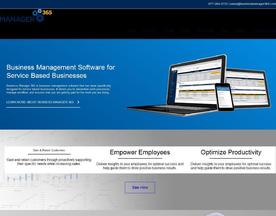What are the 10 most profitable and best franchises to own in 2024? In 2024, top franchises include fast food giants, tech repair, health & fitness, eco-friendly cleaning, pet services, senior care, and coffee shops.
Franchising has become an increasingly popular way for entrepreneurs to start their own businesses. By buying into an established brand and operating under its name, franchisees can benefit from the support and resources of the franchisor. However, not all franchises are created equal, and it can be difficult to determine which ones are worth the investment.

In this article, we will explore the best franchises to own based on a variety of factors, including financial performance, brand recognition, and growth potential. We will also provide tips for evaluating franchise opportunities and selecting the best fit for your goals and resources. Whether you are a first-time franchisee or a seasoned entrepreneur, this guide will help you navigate the complex world of franchising and make an informed decision.
Key Takeaways
- Franchising can be a lucrative and low-risk way to start a business, but not all franchises are created equal.
- When evaluating franchise opportunities, it is important to consider factors such as financial performance, brand recognition, and growth potential.
- By following these tips and selecting the best fit for your goals and resources, you can increase your chances of success as a franchisee.
Understanding Franchising
Franchise Basics
Franchising is a business model where a franchisor grants the right to use its brand name, products, and services to a franchisee in exchange for a fee and ongoing royalties. The franchisee operates a business using the franchisor’s systems and processes while adhering to strict guidelines and standards.
The franchise agreement typically includes the length of the franchise term, the initial franchise fee, ongoing royalties, and other fees. The franchisor provides training, support, and ongoing assistance to the franchisee to ensure the success of the business.
Benefits of Owning a Franchise
Owning a franchise offers several benefits to entrepreneurs. Firstly, franchisees can leverage the brand recognition and established systems of a well-known company, which can lead to a higher chance of success compared to starting a business from scratch. Franchisees also benefit from the support and training provided by the franchisor, which can help them overcome challenges and grow their business.
Another advantage of franchising is the ability to tap into the buying power of the franchise system. Franchisees can purchase supplies, equipment, and inventory at a lower cost than independent business owners. Additionally, many franchisors offer financing options to help franchisees get started.
Challenges of Franchising
While franchising offers many benefits, it also comes with its own set of challenges. Franchisees must adhere to strict guidelines and standards set by the franchisor, which can limit their creativity and flexibility. Additionally, franchisees must pay ongoing royalties and fees to the franchisor, which can impact their profitability.
Another challenge of franchising is the potential for conflict between the franchisor and franchisee. Disagreements over territory, marketing, and other issues can arise, and it is important for both parties to have a clear understanding of their rights and responsibilities.
Overall, franchising can be a lucrative and rewarding business model for entrepreneurs who are willing to follow a proven system and work closely with the franchisor. For more information on franchising, visit the International Franchise Association’s website.
Evaluating Franchise Opportunities
When considering investing in a franchise, it is important to evaluate the opportunity thoroughly. Below are some factors to consider before making a decision.
Investment and Financing
One of the first things to consider when evaluating a franchise opportunity is the initial investment required. This includes the franchise fee, which is the initial fee paid to the franchisor for the right to use their brand name and business model. Additionally, there may be ongoing royalty fees that are paid to the franchisor. It is important to carefully review the franchise disclosure document (FDD) to understand all of the costs associated with the opportunity.
Franchisees may need to obtain financing to cover the initial investment and ongoing expenses. Some franchisors offer financing options, while others may have relationships with lenders who specialize in franchise financing. It is important to research financing options and understand the terms and conditions before committing to an opportunity.
Franchise Fees and Royalty Fees
Franchise fees and royalty fees are an important consideration when evaluating franchise opportunities. Franchise fees are paid upfront and typically range from $10,000 to $50,000 or more. Royalty fees are ongoing and are usually a percentage of gross sales. The percentage can vary widely, from 2% to 12% or more.
It is important to understand how franchise fees and royalty fees are calculated and what they cover. Some franchisors may offer additional services or support in exchange for higher fees, while others may have lower fees but require franchisees to handle more of the business operations themselves.
Brand Recognition and Customer Base
Brand recognition and customer base are important factors in the success of a franchise. A well-known brand with a loyal customer base can help drive sales and attract new customers. It is important to research the brand’s reputation and customer base before investing in a franchise.
Additionally, some franchisors may offer marketing and advertising support to help promote the brand and attract new customers. It is important to understand what marketing and advertising support is available and how it is funded.
Industry Trends and Growth Potential
Finally, it is important to evaluate the industry trends and growth potential of a franchise opportunity. Is the industry growing or declining? Are there new competitors entering the market? What is the franchisor’s plan for growth and expansion?
It is important to research the industry and understand the long-term growth potential before investing in a franchise. Additionally, it is important to understand the franchisor’s plans for growth and expansion and how they plan to support franchisees in achieving their goals.
For more information on evaluating franchise opportunities, visit the International Franchise Association website.
Operational Aspects of a Franchise

When considering owning a franchise, it is important to understand the operational aspects that come with it. This section will cover the main areas of concern for franchise owners, including training and support, marketing and sales, and real estate and location.
Training and Support
One of the biggest advantages of owning a franchise is the training and support that comes with it. Franchise owners receive extensive training on how to run their business, manage employees, and maintain the brand’s standards. This training is typically provided by the franchisor and is ongoing throughout the life of the franchise.
Franchise owners also receive ongoing support from the franchisor. This support can include assistance with marketing, advertising, and promotions, as well as help with day-to-day operations. Franchisors may also provide access to proprietary software, technology, and other resources to help franchise owners run their businesses more efficiently.
Marketing and Sales
Marketing and sales are essential components of any successful franchise. Franchise owners benefit from the brand recognition and marketing campaigns of the franchisor. This can include national advertising campaigns, social media marketing, and other promotional efforts.
Franchise owners may also have access to marketing and sales tools provided by the franchisor. These tools can include point-of-sale systems, customer relationship management software, and other resources to help franchise owners grow their businesses.
Real Estate and Location
Choosing the right location for a franchise is critical to its success. Franchise owners typically receive assistance from the franchisor in selecting a location and negotiating a lease. The franchisor may also provide guidance on the design and layout of the franchise location to ensure that it meets the brand’s standards.
Franchise owners should also consider the real estate market and local competition when selecting a location. Factors such as foot traffic, accessibility, and parking should also be taken into account.
In conclusion, owning a franchise comes with many operational considerations. Franchise owners benefit from training and support, marketing and sales assistance, and help with selecting a location. By understanding these aspects of franchise ownership, entrepreneurs can make informed decisions and increase their chances of success.
Click here for more information on training and support for franchise owners.
Top Franchise Categories
When it comes to owning a franchise, choosing the right category can make all the difference. Here are some of the top franchise categories to consider:
Food and Beverage Franchises
Food and beverage franchises are some of the most popular options. From quick-service restaurants to coffee shops and sandwich chains, there are plenty of opportunities to choose from. One of the advantages of owning a food and beverage franchise is that they tend to have high brand recognition, which can help attract customers.
Some popular food and beverage franchises include Subway, Dunkin’, and Starbucks.
Retail and Services Franchises
Retail and services franchises encompass a wide range of businesses, from home improvement stores to cleaning services. These franchises can be a good option for those who enjoy working with customers and providing a service.
Some popular retail and services franchises include The UPS Store, 7-Eleven, and MaidPro.
Fitness and Health Franchises
Fitness and health franchises have become increasingly popular in recent years as more people focus on living a healthy lifestyle. These franchises can include gyms, personal training studios, and nutrition centers.
Some popular fitness and health franchises include Anytime Fitness, Planet Fitness, and GNC.
Education and Training Franchises
Education and training franchises can be a good option for those who are passionate about helping others learn and grow. These franchises can include tutoring services, language schools, and business coaching.
Some popular education and training franchises include Kumon, Mathnasium, and The Entrepreneur’s Source.
When considering a franchise, it’s important to do your research and choose a category that aligns with your interests and strengths. By selecting a franchise that you’re passionate about, you’ll be more likely to succeed and enjoy the process.
For more information on the top franchise categories, check out Entrepreneur’s list of the top 500 franchises.
Selecting the Best Franchises to Own

When it comes to investing in a franchise, selecting the right one can be a daunting task. There are various factors to consider, such as profitability, investment costs, and growth potential. In this section, we will explore some key considerations to help you select the best franchise to own.
Profitable Franchise Models
One of the most important factors to consider when choosing a franchise is profitability. It’s essential to select a franchise that has a proven track record of success. Some of the most profitable franchises include those in the food and beverage industry, fitness, health, and wellness, and home services. These franchises have a high demand and offer consistent revenue streams.
Low-Cost and High-Growth Franchises
Investing in a low-cost franchise can be an excellent option for entrepreneurs who are just starting. These franchises require a lower initial investment and offer significant growth potential. Some of the fastest-growing low-cost franchises include those in the cleaning, home-based, and senior care industries.
Franchise Rankings and Reviews
Another essential factor to consider when selecting a franchise is its ranking and reviews. Franchise rankings are a great way to evaluate the franchise’s success, growth potential, and profitability. Some of the most reputable franchise rankings include the Franchise 500 ranking by Entrepreneur Magazine and the Top Franchises ranking by Forbes.
It’s also essential to read reviews from current and former franchise owners. These reviews can provide valuable insights into the franchise’s support, training, and overall experience. One great resource for franchise reviews is Franchise Business Review, a leading market research firm that specializes in franchise satisfaction research.
In conclusion, selecting the best franchise to own requires careful consideration of various factors, including profitability, investment costs, and growth potential. By conducting thorough research and evaluating franchise rankings and reviews, entrepreneurs can make informed decisions and invest in a franchise that aligns with their goals and values.
Here is a link to Franchise Business Review, a leading market research firm that specializes in franchise satisfaction research.
Final Considerations Before Purchasing

Before purchasing a franchise, there are several important factors to consider. In this section, we will discuss legal and financial planning, building a business plan, and risk assessment and management.
Legal and Financial Planning
It is crucial to have a solid understanding of the legal and financial requirements of owning a franchise. This includes researching the franchise agreement, understanding the fees and royalties, and determining the initial investment required. It is also important to consult with a lawyer and accountant to ensure that all legal and financial matters are in order before signing any agreements.
Building a Business Plan
Developing a comprehensive business plan is essential for the success of any franchise. This plan should outline the goals and objectives of the business, as well as the strategies and tactics that will be used to achieve them. It should also include a detailed financial plan, which includes projected income and expenses, as well as cash flow projections.
Risk Assessment and Management
Owning a franchise comes with inherent risks, and it is important to assess and manage these risks before making a purchase. This includes researching the franchise’s track record, as well as the industry and market trends. It is also important to have a contingency plan in place in case of unforeseen circumstances, such as economic downturns or changes in consumer behavior.
In conclusion, purchasing a franchise requires careful consideration of legal and financial planning, building a business plan, and risk assessment and management. By taking the time to research and plan, potential franchise owners can increase their chances of success. For more information on franchise ownership, visit the International Franchise Association’s website.
Frequently Asked Questions

What are the most profitable franchises to invest in today?
Investing in a profitable franchise can be a great way to start a successful business. According to Entrepreneur.com, some of the most profitable franchises to invest in today include McDonald’s, Dunkin’, and 7-Eleven. However, it’s important to do your own research and consider your personal interests and strengths before making a decision.
Which franchises offer the best return on investment with low initial costs?
Some of the best franchises to invest in with low initial costs and high return on investment include Jan-Pro Franchising International, Jazzercise, and Stratus Building Solutions. These franchises offer low initial costs and high profit margins.
For a newcomer, what are the top franchise opportunities that require minimal experience?
For newcomers with minimal experience, some of the top franchise opportunities include Cruise Planners, Kumon Math & Reading Centers, and Tutor Doctor. These franchises offer comprehensive training and support to help newcomers succeed.
What are the leading franchises to consider for ownership in the USA?
There are many successful franchises to consider for ownership in the USA. Some of the leading franchises include McDonald’s, Subway, and Pizza Hut. These franchises have a strong brand presence and a proven track record of success.
How can one identify the best franchise opportunities under $100K?
Identifying the best franchise opportunities under $100K requires careful research and analysis. Franchise Direct offers a comprehensive list of the best franchise opportunities under $100K, including Snap-on Tools and FASTSIGNS.
What factors should be considered when choosing a franchise to ensure business success?
When choosing a franchise, it’s important to consider factors such as the franchise’s track record of success, the level of support and training offered, the strength of the brand and marketing, and the potential for growth and profitability. It’s also important to consider your personal interests and strengths to ensure a good fit. Franchise.org offers additional guidance on choosing a franchise for business success.
Unveiling the Top 10 Best Franchises to Own in 2024
Franchising remains a robust pathway for entrepreneurs seeking to leverage the power of an established brand. As we approach 2024, certain franchises stand out due to their impressive financial performance, significant brand recognition, and substantial growth potential. In this guide, we delve into the franchises that offer the best returns, supported by industry data and expert forecasts.
Comprehensive Analysis of Leading Franchises
1. Quick Service Restaurants (QSRs):
- Brand Example: Chick-fil-A
- Financial Insight: With an average annual revenue surpassing $4 million per outlet, Chick-fil-A leads the QSR sector. Franchisees can expect initial investment costs ranging from $342,990 to $1,982,225.
- Growth Potential: The QSR sector is projected to grow by 5% annually through 2028, driven by consumer demand for convenience and quality.
2. Fitness Franchises:
- Brand Example: Planet Fitness
- Market Position: Known for its low-cost memberships, Planet Fitness has a strong market presence with over 14 million members.
- Investment Insight: Total initial investment can range from $968,100 to $4,113,500, with a franchise fee of $20,000.
3. Home Improvement Retailers:
- Brand Example: Ace Hardware
- Financial Performance: Ace Hardware stores average $17 million in annual sales, showcasing the brand’s profitability.
- Industry Growth: The home improvement sector continues to benefit from trends in home renovation and DIY projects.
4. Senior Care Services:
- Brand Example: Home Instead Senior Care
- Sector Outlook: With an aging population, the demand for senior care services is escalating. Home Instead offers a lucrative opportunity with comprehensive training and support.
- Financial Overview: Initial costs are relatively moderate, with potential high returns due to increasing demand.
Strategic Tips for Franchise Evaluation
Evaluating a franchise involves thorough analysis and strategic planning. Here are key factors to consider:
- Financial Health: Review the Franchise Disclosure Document (FDD) for detailed insights into financial expectations and commitments.
- Brand Strength: Investigate customer loyalty, brand recognition, and market presence.
- Operational Support: Consider the training and ongoing support offered by the franchisor, which are pivotal for success.
- Industry Trends: Stay informed about the latest trends and forecasts in the industry of interest. This ensures alignment with growth sectors.
Enhance Your Franchise Decision with Advanced Tools
To assist in your decision-making, we recommend utilizing tools such as ROI calculators and market trend analytics available on our platform. These tools provide a data-driven approach to evaluating the potential success of various franchises.
Comprehensive Checklist for Evaluating Franchise Opportunities
Embarking on a franchise investment requires meticulous planning and careful evaluation. Below is a detailed checklist designed to help prospective franchisees navigate their decision-making process effectively:
Initial Considerations
- Identify Your Interests and Goals: Align franchise choices with your personal interests, career goals, and lifestyle preferences.
- Set a Budget: Determine how much you can afford to invest and how much you’re willing to risk.
- Research Industries: Focus on industries that show growth potential and align with your interests.
Research and Due Diligence
- Gather Franchise Information: Obtain Franchise Disclosure Documents (FDDs) from franchisors to understand the business model, fees, and legal obligations.
- Market Analysis: Analyze the market for the franchise, including local demand, competition, and market saturation.
- Franchisor Background Check: Research the franchisor’s history, reputation, and the performance of existing franchise units.
Financial Evaluation
- Review Financial Statements: Look at the franchisor’s financial statements and those of current franchisees, if available.
- Understand Fees and Costs: Clarify initial fees, ongoing royalty fees, advertising fees, and any other recurring expenses.
- Funding Options: Explore financing sources, including franchisor-provided financing, loans, and other funding options.
Legal Review
- Consult a Franchise Attorney: Have a lawyer review the Franchise Agreement and other legal documents.
- Understand Territory Rights: Check territorial restrictions and exclusivity clauses to avoid future conflicts.
- Compliance: Ensure you can comply with the franchisor’s operational guidelines and standards.
Visit Existing Franchises
- Speak with Current Franchisees: Gather insights on their experiences, the support they receive, and their satisfaction with the franchisor.
- Evaluate Operations: Visit multiple franchise locations to observe day-to-day operations and customer interactions.
Training and Support
- Training Programs: Assess the comprehensiveness of the training programs offered by the franchisor.
- Ongoing Support: Understand the level of ongoing support, including marketing, training, operational advice, and technology upgrades.
Final Assessment
- Decision Time: Review all collected information and assess whether this franchise meets your investment criteria and personal goals.
- Professional Advice: Before finalizing the decision, discuss your findings with a business advisor or a consultant specialized in franchising.
Post-Decision
- Prepare for Launch: Plan your business launch, focusing on location, staffing, and marketing.
- Engagement and Networking: Engage with the franchise community and participate in franchisor-offered training and events.
By methodically working through these steps, prospective franchisees can make well-informed decisions that maximize their chances of success and satisfaction with their franchise investment.
Compare hundreds of Franchise Management Software in our Software Marketplace













